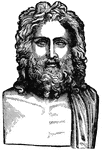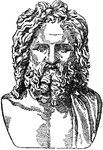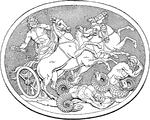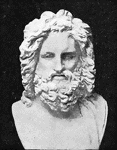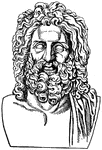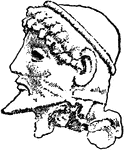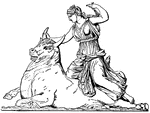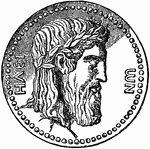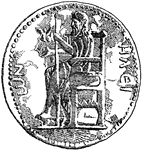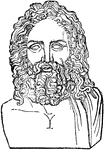Clipart tagged: ‘Zeus’
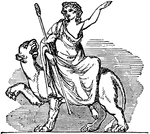
Bacchus
"The god of wine, was the son of Zeus and Semele, the daughter of Cadmus. Before his birth, Semele fell…

Banner
This banner contains images of flowers and leaves. In the center of the images is a picture of a man.

Dieties
A coin engraved with images of Minerva and Jupiter. Minerva was the Roman equivalent to the Greek goddess…

Jupiter
A medal engraved with the image of Zeus, or Jupiter, next to a sphinx; the other side of the coin depicts…

Temple of Jupiter
"The door in front of a temple, as it reeached nearly to the ceiling allowed the worshippers to view…
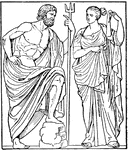
Poseidon
The Greek god of the sea, identified by the Romans with the Italian deity Neptune. A son of Kronos and…

Antique Table Support Trapezophoron
The Antique table support is made out of marble. The ornamentation on the leg is possibly from a table…
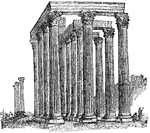
Temple of the Olympian Zeus
"Athens is said to have derrived its name from the prominence given to its worship of Athena by its…
